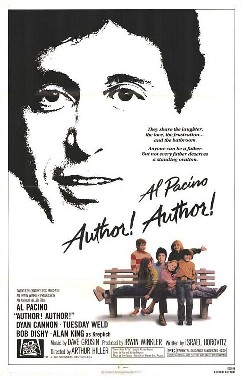Search This Blog
Thursday, June 30, 2016
Shoot Out At Medicine Bend (1957)
An ex-Union officer (Randolph Scott) traveling with two ex-soldier friends (James Garner, Gordon Jones) are robbed of their clothes and money. Disguised as devout Quakers, they enter the town of Medicine Bend in search of the men who robbed them. What they find is a terrified town run by a corrupt businessman (James Craig). This run of the mill "B" western is an inoffensive programmer that holds your interest for its brief running time (under 90 minutes) but quickly starts fading from memory as soon as it's over. Scott was doing some great westerns during this period with director Budd Boetticher between 1956 and 1960 so this modest B&W seat filler seems out of time with with those more memorable efforts. It's fun to see two young emerging stars at the very beginning of their careers. James Garner already displaying his likable screen presence and Angie Dickinson is lovely though as the "good" girl swathed in gingham, she has no opportunity to display her special brand of carnality. Directed by Richard L. Bare. With Dani Crayne (soon to retire and become Mrs. David Janssen) as the "bad" girl, Myron Healey, Ann Doran and Nancy Kulp.
A Passage To India (1984)
In 1920s India which is still under British colonial rule, an elderly woman (Peggy Ashcroft) visits India along with the young woman (Judy Davis) who is expected to marry her son (Nigel Havers), the magistrate of a small provincial town. The young woman who is unsure if she wants to marry is enjoying the sense of adventure she feels in India but a fateful encounter at the Marabar caves will have tragic consequences for all concerned. Based on the 1924 novel by E.M. Forster (A ROOM WITH A VIEW) about the British colonialists contempt for and disassociation from the very people whose country they are governing, this was the last film directed by David Lean and a better swan song, one could not have hoped for. Intelligent and literate but never stuffy, Lean never lets the landscapes overpower the intimate story which was problematic for his prior film, RYAN'S DAUGHTER. Eschewing his usual cinematographer Freddie Young, Ernest Day takes charge of the lensing shooting in a modest 1.85 ratio rather than scope. Apparently Lean wanted to shoot the film in scope but HBO which invested money in the film wanted a more TV friendly format. With the exception of Alec Guinness in a rare bad performance, the acting is excellent with Ashcroft (in an Oscar winning performance) especially splendid. With Victor Banerjee, Art Malik, Saeed Jaffrey and Roshan Seth.
Wednesday, June 29, 2016
The Smiling Lieutenant (1931)
In Vienna, a Lieutenant (Maurice Chevalier) becomes enamored of a violinist (Claudette Colbert) in an all girl orchestra. But trouble pops up in the form of the Princess (Miriam Hopkins) of a small country who feels the Lieutenant has slighted her but it's all a misunderstanding. Based on the operetta EIN WALZERTRAUM by Oscar Straus by way of the Hans Muller Einigen novel NUX DER PRINZGEMAHL, Ernst Lubitsch's Oscar nominated (best picture) musical is a real charmer! Both the screenplay and the song lyrics are witty and naughty and the three leading players perform with zeal. This is a pre-code film and boy, does it get away with a lot. Colbert enters Chevalier's apartment then a blackout then they're having breakfast after having spent the night together. I'm not a fan of Chevalier's overly Gallic charms but he's very tolerable here. Colbert and Hopkins aren't known for their singing abilities but they put over the delightful Jazz Up Your Lingerie number with gusto. With Charles Ruggles and George Barbier.
Tuesday, June 28, 2016
La Veuve Couderc (1971)
In 1934 France, a young drifter (Alain Delon) walking through the Burgundy countryside is offered work by a lonely widow (Simone Signoret). But the machinations of her venomous sister in law (Monique Chaumette) will lead to a disastrous end. Based on the novel by Georges Simenon and directed by Pierre Granier Deferre. Lovely but terribly pessimistic tale about two loners just looking for a little patch of peace in their lives and how outside forces propel them to their doom. I've never been a fan of Delon, he just seems so distanced (which makes him perfect for Melville's films) much of the time but he's excellent here and it may be my favorite performance of his, even more than his Rocco. Signoret is, of course, perfection and everything we need to know about her character is in her body. The background of Delon's character is never fully revealed so the massive overkill on the part of the police seems perplexing. The subdued underscore is by Philippe Sarde. With Ottavia Piccolo and Jean Tissier.
Monday, June 27, 2016
Criss Cross (1949)
A man (Burt Lancaster) returns to Los Angeles after having been away for 8 months after the break up of his marriage. But his ex-wife (Yvonne De Carlo) is still under his skin and they renew their relationship even though she's married to another man (Dan Duryea). But it's the kind of love that will destroy them all. Directed by Robert Siodmak (THE KILLERS), this film is the very definition of film noir! It's all here: the doomed hero (Lancaster), the femme fatale (De Carlo), the tough police detective (Stephen McNally), the charismatic villain (Duryea), the atmospheric B&W lensing and lighting (Franz Planer), a Miklos Rozsa score and a fatalistic ending! All packed in a taut 90 minute package. While many noir films are often a case of style over substance, Siodmak and his writer Daniel Fuchs (adapting Don Tracy's novel) shore up the narrative with an almost poignant portrait of a man so obsessed with a woman that he can't see anything else and follows her to his own doom, the film's dark ending is among the best in the genre. Remade by Steven Soderbergh in 1995 as THE UNDERNEATH. With Richard Long, Percy Helton, Alan Napier and in his film debut, Tony Curtis.
Why Must I Die? (1960)
Sunday, June 26, 2016
The Shallows (2016)
Moulin Rouge! (2001)
Saturday, June 25, 2016
Parrish (1961)
A young man (Troy Donahue) moves with his mother (Claudette Colbert) to a Connecticut tobacco farm where his mother will work as a chaperone to the daughter (Diane McBain) of a struggling tobacco farmer (Dean Jagger). But it isn't long before he finds himself caught between the farmer and a ruthless tobacco tycoon (Karl Malden) as they fight over land. Based on the 1958 best seller by Mildred Savage and directed by Delmer Daves. Daves' previous film A SUMMER PLACE (also with Donahue) was a big hit so it was inevitable that Warners would want to reunite the two to test Donahue's potential star power. Savage's novel got good reviews but the film plays out like a juicy potboiler with one major flaw. The title role needs an actor with enough charisma and a soupcon of talent that can hold the screen and that ain't Donahue. The vanilla Donahue can be acceptable when he isn't pressed to actually act but here, the demands of the role are beyond his limited ability and we're not talking Eugene O'Neill material here, more like Erskine Caldwell. Colbert is wasted and only two performers manage to make an impression: Malden's rancorous baron and McBain's spoiled rich girl. With Connie Stevens, Sylvia Miles, Sharon Hugueny, Madeleine Sherwood, Hampton Fancher, Bibi Osterwald and Hayden Rorke.
Friday, June 24, 2016
Como Agua Para Chocolate (aka Like Water For Chocolate) (1992)
As the youngest daughter, a young girl (Lumi Cavazos) is forbidden to marry by family tradition as it is her duty to care for her mother (Regina Torne) until she dies. So the boy (Marco Leonardi) marries her sister (Yareli Arizmendi) just so he can be near her. Based on the best selling novel by Laura Esquivel and directed by Alfonso Arau. Like Esquivel's novel but unfortunately not as detailed, the film makes a connection between passion and food. There is something very sensual about a delicious well prepared meal and Esquivel ties it together with the emotional and physical passion of love. The film is a sort of contemporary fable accepting magic as a realistic part of life. For example, when Cavazos' tears drop into the pot as she cooks, when the dinner is served, the guests feel the tremendous sadness that went into the food's preparation. The film has a visual glow to it (the cinematography by the great Emmanuel Lubezki) and imparts a sense of alchemy. But because of a major blunder in the casting, the film never quite worked 100% for me. Leonardi is bland and unable to suggest any sort of passion whatsoever. The film frequently talks about fire but Leonardi can't seem to ignite anything more than a dying ember. With Mario Ivan Martinez and Claudette Maille.
The World In His Arms (1952)
Thursday, June 23, 2016
The Pope Of Greenwich Village (1984)
Wednesday, June 22, 2016
The Private Affairs Of Bel Ami (1947)
Black Widow (1954)
An ambitious young girl (Peggy Ann Garner) moves to New York City and immediately begins using people including her uncle (Otto Kruger), wealthy boyfriend (Skip Homeier) and a Broadway producer (Van Heflin) on her climb to the top. But when she turns up dead in the producer's apartment, he becomes the prime suspect and it's a race against time to prove his innocence before he's arrested for her murder. Based on the 1952 novel by Patrick Quentin and directed by Nunnally Johnson. It's a more than decent murder mystery a la LAURA set among the posh theatrical and artistic set in a stylish Manhattan. Although filmed in Deluxe color and CinemaScope, the film is often referred to as noir but I wouldn't call it that. It's just a good old fashioned whodunit though Garner's deadly femme fatale certainly fits in the noir mold. Garner's not bad at all here and one would have thought this film would prove a nice transition from child actress to grown up roles, but she only did 2 more movies in her lifetime (including Altman's A WEDDING) though she worked steadily in TV. This was director Johnson's second film in CinemaScope and apparently nobody ever told him he could do close ups in the format! The star studded cast includes Ginger Rogers, Gene Tierney, George Raft, Virginia Leith, Reginald Gardiner, Cathleen Nesbitt and Hilda Simms in a remarkably non-stereotypical role for a black actress in the 1950s.
Tuesday, June 21, 2016
Kept Husbands (1931)
A capricious and spoiled rich girl (Dorothy Mackaill) falls in love with an enterprising young man (Joel McCrea) who works at her father's steel factory. The difference in class and financial status doesn't deter her but after their marriage, he begins to resent her presumptions that he accept her lifestyle rather than the other way around. An early pre-code effort directed by Lloyd Bacon (42ND STREET), the film is interesting in its look at the class differences during the depression era America as well as the accepted role of males and females in a "traditional" marriage which is certainly different than today. It's not a heavily serious film on the subject and there's humor in the film but it's yet another film of the era where a strong and independent minded woman eventually subjugates herself to the man. Not that the husband isn't right in wanting to support his wife on his salary rather than her (or her father's) money but the film makes it so black and white. McCrea is immensely appealing (when wasn't he?) so a case for the husband is easily made. A trifle but enjoyable. With Ned Sparks, Mary Carr and Florence Roberts.
Monday, June 20, 2016
You'll Like My Mother (1972)
Sunday, June 19, 2016
The Terror (1963)
In 1802 in a coastal territory of Germany, a French soldier (Jack Nicholson) finds himself lost and detached from his troop. He spots a pretty but mysterious maid (Sandra Knight) on the beach who leads him to fresh water. But when he attempts to find her, everyone claims she doesn't exist. This low budget horror entry (reputedly shot in 4 days) from director Roger Corman doesn't have the style and focus of his Poe adaptations. There's no real narrative to speak of and much of the movie is Nicholson walking down castle corridors, fog shrouded graveyards, lush forests or the beach while the audience waits for something to happen. It's a handsome looking film however with John M. Nickolaus Jr.'s cinematography making the most of the California coastline locations and leftover sets from THE RAVEN and THE HAUNTED PALACE. But there's no getting around that the film moves at a snail's pace and has no real tension. Also, there's a revelation at the film's end that makes no sense whatsoever! With Boris Karloff, Dick Miller, Jonathan Haze and Dorothy Neumann.
Genius (2016)
Plenty (1985)
After WWII ends, a young woman (Meryl Streep) who had been a courier for the resistance in France, finds adjusting to peacetime life difficult. The dreams she had of a better world are dashed by the stagnancy of Great Britain following WWII and her anger manifests itself in mental illness. Based on the acclaimed play by David Hare (who wrote the screenplay) and directed by Fred Schepisi (SIX DEGREES OF SEPARATION). Although Hare's screenplay is perhaps too tightly constructed (I've not read the play) to allow much room for anyone besides Streep's narrow focus, I still found it a compelling film. Considering that Streep's character is essentially Hare's mouthpiece as she rants and raves about the corruption of the British ruling class as the character's malignant ennui begins to poison not only her but everyone around her, she's a surprisingly empathetic character. It helps that Schepisi has surrounded himself with some top talent like Ian Baker's cinematography, Bruce Smeaton's underscore and Richard Macdonald's production design. Streep is very good here, she hides the turning wheels and doesn't go all actressy on us. With John Gielgud (excellent), Charles Dance, Tracey Ullman, Ian McKellen, Sting, Burt Kwouk and Hugh Laurie.
Saturday, June 18, 2016
One From The Heart (1982)
Friday, June 17, 2016
The Old Maid (1939)
After 2 years of waiting for her fiance (George Brent) to return, a girl (Miriam Hopkins) marries someone else. He returns on the day of her wedding but she refuses his attention. Her cousin (Bette Davis) however has always loved him and follows him. He dies in the Civil war leaving the cousin an unwed mother. The married cousin adopts the child and raises her as her own while the real mother becomes a bitter old maid watching her daughter brought up by someone else. Based on the Edith Wharton novel by way of Zoe Akins' Pulitzer prize winning play and directed by Edmund Goulding. Bette Davis had a stellar year in 1939. In addition to this film, she was the doomed heroine of DARK VICTORY, the going mad Empress in JUAREZ and Elizabeth I in PRIVATE LIVES OF ELIZABETH AND ESSEX. She's rather reined in here which makes a good contrast to Hopkins' bubbly belle and they have a good chemistry together although reputedly once the camera stopped, it was a different story. The film is an excellent example of a quality soap opera, repressed emotions with things left unspoken for years as the two women live under the same roof and the conflict builds. With Jane Bryan, William Lundigan, Donald Crisp, Jerome Cowan, James Stephenson and Louise Fazenda.
Banco A Bangkok Pour OSS 117 (1964)
Thursday, June 16, 2016
The Devil's Disciple (1959)
It's 1777 and the British army is fighting the American rebels. A pious preacher (Burt Lancaster) attempts not to take sides while a black sheep and rebel (Kirk Douglas) from the village taunts him. But when British soldiers come to arrest the minister, the rebel does something astonishing. Directed by Guy Hamilton (GOLDFINGER) and based on the 1897 George Bernard Shaw play but with some substantial changes from Shaw's text. For example, in the play, once Douglas's character inherits the family home after his father dies, he kicks his mother out of the house. To make Douglas's character more sympathetic, she leaves voluntarily while he implores her to stay. In the film, Lancaster's character is given some action scenes including a brawl with a British Captain as he attempts to blow up casks of gun powder. But the changes aside, it's fairly entertaining and performed well (with one exception) especially Laurence Olivier's General Burgoyne who effortlessly puts the movie in his pocket. The one exception is a miscast Lancaster. One has to admire him for tackling challenging roles that are beyond his ken like COME BACK LITTLE SHEBA, THE ROSE TATTOO and here. The next year he would fare much better playing a different kind of preacher. The excellent score is by Richard Rodney Bennett. With Janette Scott, Harry Andrews, Eva La Gallienne, Basil Sydney, Mervyn Johns and Allan Cuthbertson.
Wednesday, June 15, 2016
Relative Values (2000)
I Saw What You Did (1965)
Two silly teenagers (Andi Garrett, Sara Lane) left to their own devices make random prank calls to anonymous strangers whose names they find in the phone book and tell them, "I saw what you did and I know who you are". But it's more than a prank to one man (John Ireland) who's just murdered his wife (Joyce Meadows). Yes, director William Castle (STRAIT JACKET) is up to his old tricks again. Between the awful acting of the two teen leads and the annoying kid sister (Sharyl Locke) and the Brady Bunch underscore, it's hard to take the movie seriously. Throw in the 60 year old Joan Crawford (who looks a decade older) acting like a kittenish femme fatale, you have an irresistible groaner of a movie. The premise itself is good but it would take a better script and a director who took his work more seriously (thankfully, he was talked out of directing ROSEMARY'S BABY) for it to fall into place. But he was a showman all right! The posters warned "This is a motion picture about UXORICIDE!" which no doubt sent moviegoers to their dictionary. With Leif Erickson, Patricia Breslin and John Archer.
The Southerner (1945)
Tired of picking cotton for other people, a man (Zachary Scott) leases a piece of land to farm with the option of buying it. But it isn't easy as poverty, jealous neighbors and mother nature conspire to defeat him. The great French director Jean Renoir made only five films in Hollywood during his stay there in the 1940s. Based on the novel HOLD AUTUMN IN YOUR HAND by George Sessions Perry, THE SOUTHERNER is probably the best of the bunch. It's an imperfect film but there are moments of such great beauty and power that pointing out its minor deficiencies seems petty. The film is perhaps slightly romanticized but Lucien Andriot's exquisite location lensing gives the movie an almost poetic feel. With one exception, the acting is strong particularly Zachary Scott in a role far removed from the playboys he usually did at Warners. The one exception is Beulah Bondi who goes overboard as the cantankerous grandmother. A sensitive film without being overly sentimental. The Oscar nominated score is by Werner Janssen. With Betty Field, J. Carrol Naish, Norman Lloyd, Percy Kilbride, Blanche Yurka and Noreen Nash.
Tuesday, June 14, 2016
New York, New York (1977)
On V-J Day in 1945, all of New York is celebrating and a presumptuous and pushy jazz musician (Robert De Niro) foists himself on a promising singer (Liza Minnelli). They eventually fall in love and the film follows their rocky relationship to its inevitable conclusion. One of Martin Scorsese's most divisive films. I've met people who adore it and I've met people who hate it with a passion. I think I'm smack dab in the middle veering toward an appreciation of it. Scorsese's film is an attempt to marry the classic Hollywood musical with the new (1977) Hollywood but he can't find the right tone to make it all work. He uses artificial looking stage bound sets in some scenes, there's a certain glamour to the movie and some of the musical numbers are clearly a homage to the musicals of the 1940s and 50s. But his characters don't resemble the people of those movies, they're contemporary and hold nothing back. You'd never find a character like De Niro's Jimmy Doyle in an MGM musical. He's arrogant, egotistical and an unlikable lout. De Niro plays him perfectly but he's a difficult character to sit with through an almost 3 hour movie. It's an ambitious failure but not without some striking images (Laszlo Kovacs did the cinematography) and moments like Minnelli's rendition of the title song. With Lionel Stander, Barry Primus, Mary Kay Place, Georgie Auld, Clarence Clemons and Diahnne Abbott.
Monday, June 13, 2016
Mozambique (1964)
Sunday, June 12, 2016
La Fantome De La Liberte (aka Phantom Of Liberty) (1974)
It begins in 1880 Toledo, Spain as Napoleonic soldiers desecrate a Catholic church before it jumps to modern day Paris where a strange man lures little girls away and gives them "dirty" postcards and from then on a continual surrealistic journey from the dark wit of Luis Bunuel. This was his follow up film to his acclaimed DISCREET CHARM OF THE BOURGEOISIE and they share an absurdist fragmented nature. But it lacks CHARM's precise focus and while that film had a core group of characters through out the film, LIBERTE is a series of black comedy sketches. Fortunately, most of them quite amusing. Bunuel plays on what society deems as proper and what isn't as in the much talked about scene where people gather around a table on toilet seats doing their business while engaging in polite conversation but excuse themselves to go to a small room to eat something in private or how we deliberately overlook the obvious (the "missing" child sequence). Poking fun at conventional morality was a Bunuel specialty and he's having a great time here. So will you. The large cast includes Monica Vitti, Michel Piccoli, Jean Claude Brialy, Adriana Asti, Michael Lonsdale, Adolfo Celi, Jean Rochefort and Marie France Pisier.
The Conjuring 2 (2016)
In 1977 England, a young girl (Madison Wolfe) becomes possessed by a former owner of the house. A married couple (Vera Farmiga, Patrick Wilson), who are paranormal investigators, is asked by the Catholic church to investigate. Based on a "true" story. The first THE CONJURING (2013) was a huge hit but more importantly, it was a first rate horror film. This film opens badly with an Amityville pre-credit sequence then it shifts into high gear only to infuse it with some unneeded sentimentality (which the first one didn't have). The movie stops dead in its tracks so Patrick Wilson can sing Presley's Falling In Love With You! Just what a horror film needs, right? There are a couple of genuine "jump" moments and the acting is rather good with some excellent actors like Frances O'Connor, Franka Potente and Simon McBurney in the cast. But it's as if director James Wan felt that he had to up the ante and give us more. So what we get are endless shots of the characters walking in dark corridors or into dark rooms almost in slow motion while Joseph Bishara's underscore rattles on the soundtrack that something terrible is going to happen. Not bad but very disappointing.
Friday, June 10, 2016
A Black Veil For Lisa (aka La Morte Non Ha Sesso) (1968)
Set in Germany, a narcotics detective (John Mills) is insanely jealous of his sexy younger wife (Luciana Paluzzi) and it's beginning to affect his job. Meanwhile, he's attempting to track down a drug lord but all his contacts get killed before they can talk! Directed by Massimo Dallamano, this movie is often erroneously referred to as a giallo which it's definitely not even though there are some brutal murders. A crime thriller would be a more accurate description, it's not a mystery as the killer is revealed quite early in the film. If it had been made in the 1940s in B&W, it would be film noir with Mills as the poor doomed patsy and Paluzzi as the calculating femme fatale. John Mills gets to bring a lot of shading to his besotted policeman, much more than is usually displayed in such pulp which I suppose is what attracted him to the unlikely (for him) role. With Robert Hoffmann as the hit man who's not as clever as he thinks.
Midnight In The Garden Of Good And Evil (1997)
Set in the city of Savannah in Georgia, a highly respected antiques dealer (Kevin Spacey) is arrested for the murder of his sometime lover (Jude Law). He states it was self defense but a New York writer (John Cusack) begins doing some investigation of his own. Based on the huge non-fiction best seller by John Berendt (almost a year on the New York Times best seller list) and directed by Clint Eastwood. Although the book was based on fact, the film makes many changes from the source material. There were actually four trials with two different lawyers but in the film, it plays out as one trial. The screenplay adds a romantic interest (played by Alison Eastwood) for Cusack that wasn't in the book and which slows down the movie. There's a great movie in there somewhere instead of just a decent film and maybe with some judicious editing shears, it could be found. There's no reason for it to be over 2 1/2 hours long. The amount of time wasted on the Cusack/Eastwood romance could have been used for more detailed development and too much time is spent on the character of Chablis Deveau (Lady Chablis) which adds little to the film (like the whole black cotillion sequence). With Jack Thompson, Kim Hunter, Dorothy Loudon, Irma P. Hall, Bob Gunton, Paul Hipp, Anne Haney and Jo Ann Pflug.
Thursday, June 9, 2016
Ladies In Retirement (1941)
The Pajama Game (1957)
As labor and management at a pajama factory fight over over a 7 1/2 cent per hour wage increase, it can't help but affect the romance between a plant superintendent (John Raitt) and a union leader (Doris Day). This delightful musical with a leftist bent (it's reputedly one of Jean Luc Godard's favorite musicals) is that rarity. It makes the transition from Broadway to Hollywood almost intact and with one major exception, the Broadway cast gets to repeat their stage roles. The exception is Doris Day taking over from Janis Paige but it's understandable that Warners wanted one box office name for insurance and Day is hardly a compromise. It's just about a perfect musical: it's actually about something (the exploitation of workers by big business who graft profits for themselves), a terrific batch of songs by Richard Adler and Jerry Ross, excellent choreography courtesy of the great Bob Fosse, solid direction split between George Abbott (who directed it on Broadway) and Stanley Donen and all performed by a dream cast. With Carol Haney, Eddie Foy Jr., Barbara Nichols, Reta Shaw and Thelma Pelish.
Wednesday, June 8, 2016
The Boys From Brazil (1978)
The Wasp Woman (1959)
The aging founder (Susan Cabot) of a cosmetics company is also the face in the company's advertisements. But as she ages, the sales begin to plummet. But a scientist (Michael Mark) has discovered a serum that can reverse the aging process. Unfortunately, there's a horrendous side effect! One of the many early sci-fi/horror efforts of the young Roger Corman, this rather silly piece of "B" pulp is fun in its own lowbrow way. Even its poverty row budget adds to the entertainment. We get stock shots of Manhattan (where the film allegedly takes place) but some of the location shots are so obviously LA.! It's a knock off gender reversal of THE FLY which came out the year before. The film's straight faced sincerity does a lot in giving the film a bit of charm. With Anthony Eisley and the likable Barboura Morris.
The Big Trail (1930)
Tuesday, June 7, 2016
Far From The Madding Crowd (1967)
Monday, June 6, 2016
Hamlet, Prince Of Denmark (1980)
The Prince (Derek Jacobi) to the Danish throne is greatly disturbed that his mother (Claire Bloom) has married his uncle (Patrick Stewart) so soon after his father's death. But a visit from the ghost of his father (Patrick Allen) incenses him even more as he discovers his uncle poisoned his father and he sets on his journey to avenge his father. I've lost count of the countless productions on stage, screen and television that I've seen of Shakespeare's tragedy. The role of Hamlet is considered by many actors the true test of an actor's mettle. This adaptation done by the BBC was highly praised and Derek Jacobi's Hamlet declared one of the best Hamlets. My enthusiasm is more reserved. At over 3 1/2 hours, this is a near complete presentation of the complete HAMLET but there's a good reason why it is usually trimmed down for performance. There's some fat in the bard's opus. This production is on the dull side, presented without much style or imagination and essentially a camera placed on a sound stage for the actors to play out the tale. Jacobi's Hamlet didn't work for me though I imagine it might have been thrilling on the stage which is how Jacobi plays it ... to the back of the theater. I was much more impressed by Bloom's Gertrude and Stewart's Claudius, one of the best Claudius I've seen and I liked Eric Porter's Polonius a lot too. Directed by Rodney Bennett. With Lala Ward as Ophelia, Jonathan Hyde and David Robb.
Sunday, June 5, 2016
The Lobster (2015)
Saturday, June 4, 2016
Duel On The Mississippi (1955)
The Children's Hour (1961)
Two young women (Audrey Hepburn, Shirley MacLaine) manage an exclusive boarding school for girls. When a nasty and venomous student (Karen Balkin) is disciplined, she retaliates by telling her grandmother (Fay Bainter) that the teachers are flaunting their lesbian affair in front of the students. The child's malicious lie has far reaching consequences for all concerned. Based on Lillian Hellman's 1934 hit play and directed by William Wyler, who had previously directed the first film version in 1936 under the title THESE THREE. The 1936 film changed the lesbian accusation to one of a love triangle between the two teachers and a man. THESE THREE is an excellent film and unfortunately, THE CHILDREN'S HOUR is often pushed aside in favor of the 1936 film. HOUR remains a potent piece of film making with terrific turns by MacLaine and Bainter and alas, remains as relevant today as it was in 1934. In actuality and why Hellman had no problem with the 1936 film, the narrative isn't about homosexuality but the destruction of human lives based on a child's hateful lie and the film has many similarities to the 1987 McMartin pre-school trial in California which lasted 3 years. The owners and staff were accused of sexual child abuse but all charges were dropped but lives were already irretrievably damaged. With James Garner, Miriam Hopkins (who played MacLaine's part in the 1936 film) and Veronica Cartwright.
The End (1978)
After being diagnosed with a terminal illness by his doctor (Norman Fell), a man (Burt Reynolds) decides to commit suicide rather than face the deterioration and pain that will come with the fatal illness. In addition to playing the leading role, Reynolds also directs this uneven black comedy. It plays out like a series of comedy sketches stitched together, some are okay but some like the sequence with Reynolds and a priest (Robby Benson) are awful. But at the halfway mark, a small miracle occurs. Dom DeLuise turns up as a psychotic schizophrenic and suddenly the picture is actually funny. DeLuise attacks his role with glee and abandon, a plump neurotic demon bubbling over with vitality in between bouts of self loathing. As for the rest of the film, it's mostly Reynolds and there's something unpleasantly narcissistic about his performance and I'm still not sure if it's the actor or the character. With Joanne Woodward, Sally Field, Myrna Loy, Carl Reiner, Pat O'Brien, Kristy McNichol and David Steinberg.
Friday, June 3, 2016
Author! Author! (1982)
Murders In The Rue Morgue (1932)
In 1845 Paris, a deranged scientist (Bela Lugosi) kidnaps young women and injects them with the blood of his gorilla in the hopes of finding a mate for his ape. Very loosely based on the classic novella by Edgar Allan Poe which has been filmed many times. Directed by Robert Florey (BEAST WITH FIVE FINGERS), this is a very primitive film. The acting is mostly terrible (Lugosi an exception) but Florey and his ace cinematographer Karl Freund manage to create a dark, disquieting climate that instills a sense of morbid dread. This is a pre-code film but apparently the violence was unacceptable even back then so the running time was cut by about 10 minutes. It's the flip side of the beauty and the beast of KING KONG which would come the following year. Part of the film's unsettling titillation is the implied sexual mating of a gorilla with the young girls. With the stiff Leon Waycoff as the nominal hero, he would become a reliable character actor once he changed his name to Leon Ames. Also in the cast a very young Arlene Francis as one of the victims, years before she became one of TV's most famous game show panelists.
Thursday, June 2, 2016
Die Nibelungen (1924)
Wednesday, June 1, 2016
Husbands And Wives (1992)
When their married best friends (Judy Davis, Sydney Pollack) announce they are breaking up, a married couple (Woody Allen, Mia Farrow) begin to question their own relationship as their own marriage begins to unravel. Between the completion of the film and the film's release, the Soon Yi "scandal" broke and as a result, it's almost impossible to not read into Woody Allen's film. At one point in the film, Farrow asks Allen, "Are you hiding something from me?" and later when asked about his relationship with a girl (Juliette Lewis) young enough to be his daughter, he responds "Everything about it was wrong but it didn't deter me". HUSBANDS is rarely brought up when discussing Allen's best films but when it opened, the reviews were highly positive and I think it's very good. Allen's screenplay received an Oscar nomination as did Judy Davis's fierce performance. If you're not sure you've seen it, this is one that opens with Carlo Di Palma's dizzying handheld camera weaving in and out. The film's faux semi-documentary approach is the perfect setting for this romantic roundelay. With Liam Neeson, Blythe Danner, Ron Rifkin and Caroline Aaron.
Subscribe to:
Posts (Atom)
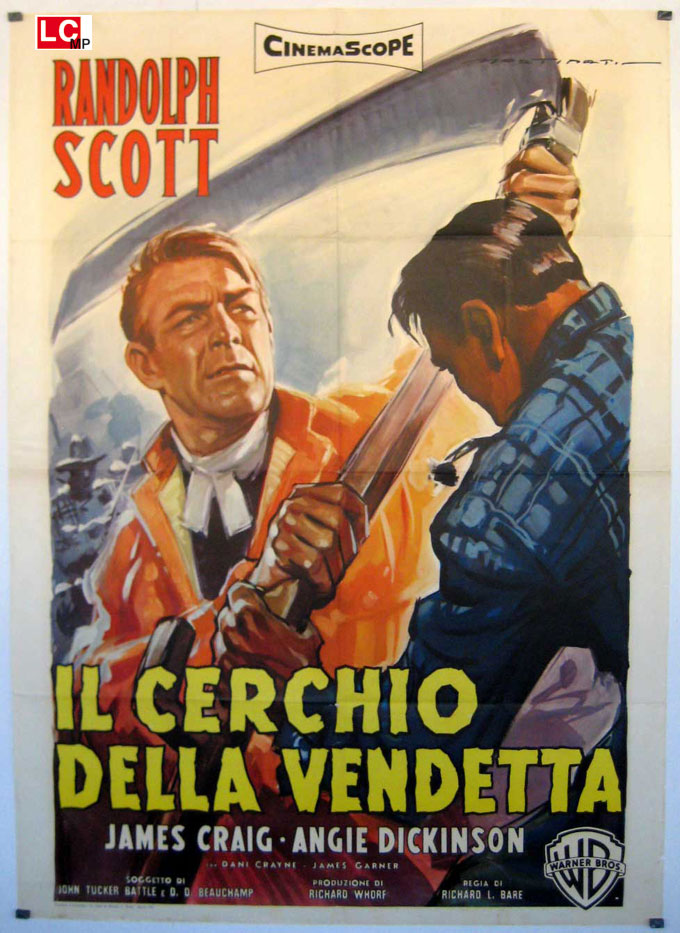

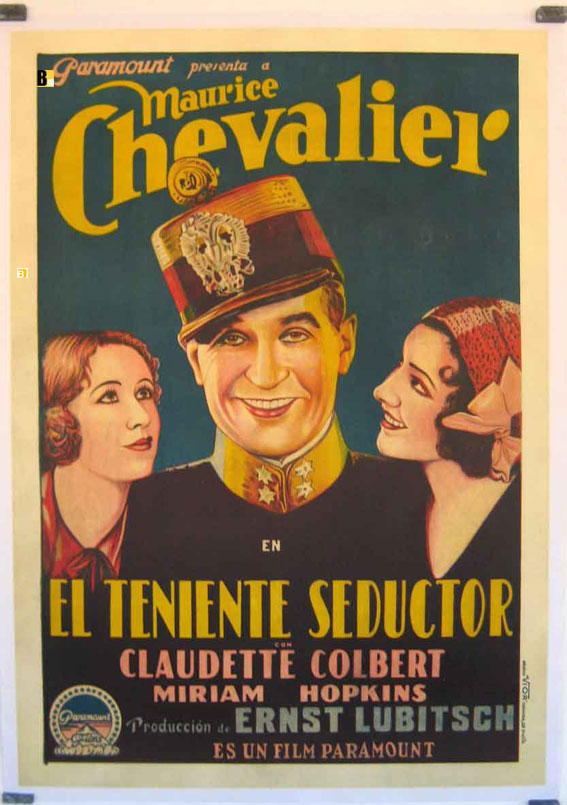



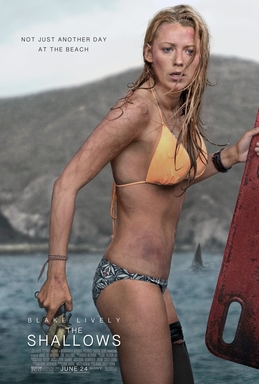






.JPG)
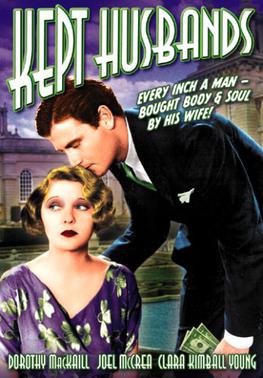





.JPG)
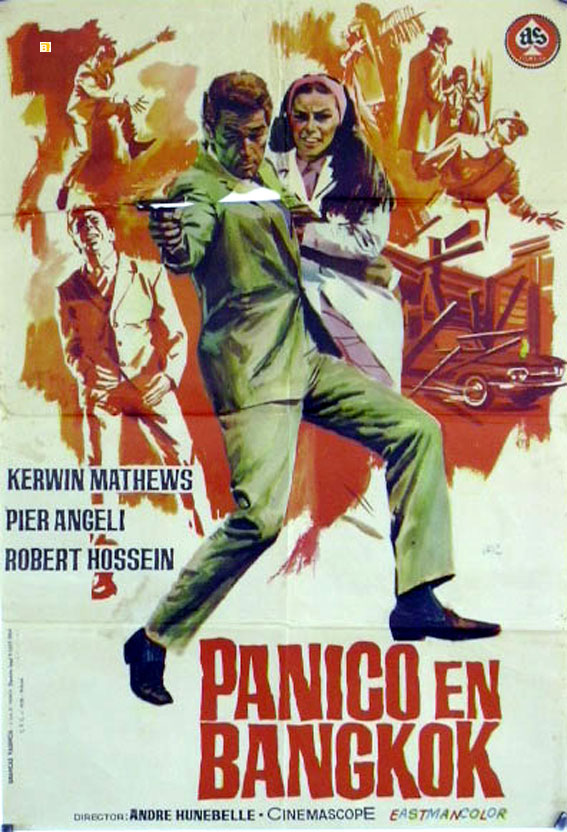












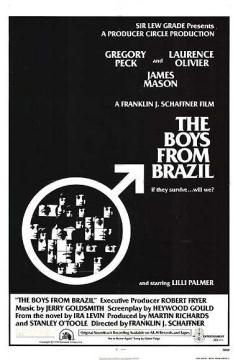

.JPG)
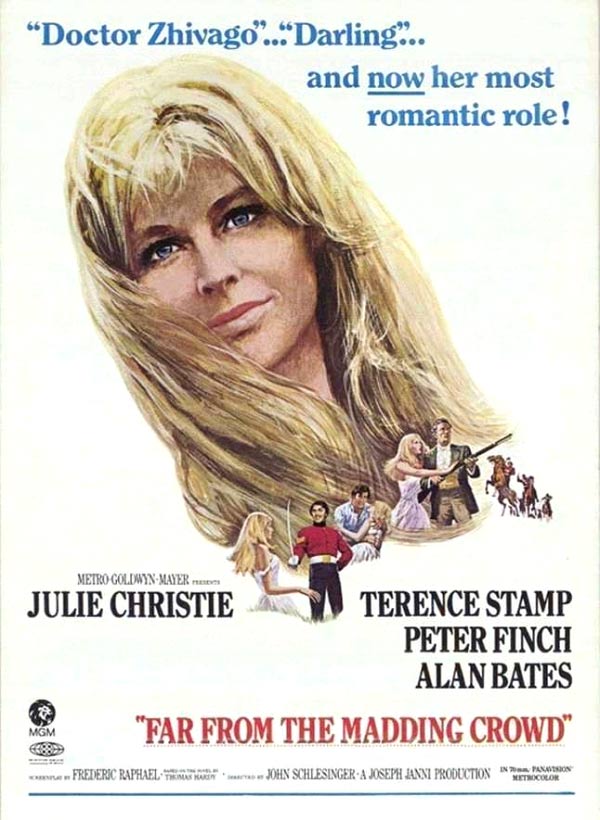

_poster.jpg)


.jpg)
